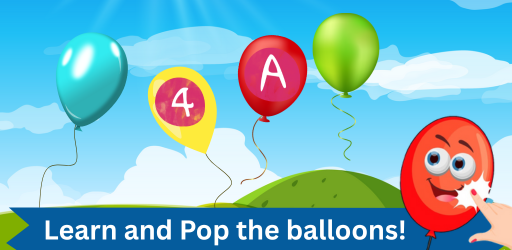Online Learning: Is It the Future of Modern Education?
Online education differs from classroom education. Internet-based students must complete exams and assignments, even if they learn online by reading or viewing videos. Online coaching doesn’t need a certain location or time. This flexibility helps those who can’t always attend courses in person. E-learning provides various advantages over conventional methods. And that’s what the meaning of online education is, and its value.
Is Online Class The Future Of Education?
Is online education the future? That’s probably the first among many questions that might come to your mind. Everything has been transformed by technology, and education is no different. eLearning has had a major impact on the educational environment. Learners and instructors alike have benefited from the advent of e-Learning, which has made it easier for all parties. Indeed, instructional material has been embraced warmly by students. New goods seldom do this. Online courses will likely be around for a while.
Future versions should be more user-friendly. Online teachers will utilize innovative approaches to engage students. Companies train their employees through e-Learning courses. With all the enthusiasm and effort, e-Learning’s future isn’t bleak.
What’s The Global Coronavirus Pandemic’s Influence On Online Learning?
Due to the pandemic, instructional activities have relocated online. There, you may hear professors and focus on writing texts. Although, the Coronavirus pandemic have become so influential that it’s the main topic of understudies’ essays nowadays. But still students prefer to write typical essays, about weather, holidays, or hobbies. This way, students may find plenty of free essays online regarding weather changes, for instance. They can learn through absolutely free essays about weather and gain useful knowledge. Teachers prefer giving them in order to keep students aware of the situation and learn through it.
No social laboratory experiments prompted students to switch to online or remote schooling. Undergrads were surveyed before and after online learning. Access, better tools, and family and government aid might improve student project grades. Students grew. Emotional obstacles hampered online learning.
Can Online Schooling Replace Typical Offline Schools?
Students may profit from online learning and regular classes, even if e-learning won’t replace classrooms. If they can’t attend your program and university in another country, a high-tech virtual classroom from home may be superior. Distance, availability, or other circumstances may prevent a student from attending class. As technology improves, distance learning should become more creative.
- Most teachers say technology in online classes improves students’ education. Online learning requires closer collaboration between students, teachers, and curriculum authors. If distant learning is described well, students will embrace it.
- Online learning needs a device with fast internet and Wi-Fi connection. Making technology accessible is one of the best methods to improve education.
- Digitally delivering theoretical lectures is easy, but practical lessons may be tough. Applicable courses may employ in-person classes.
Learners And Instructors Are Becoming More Familiar With The Use Of Computers And Other Electronic Devices.
Digital media has penetrated our lives, even primary pupils’. Understudies are accustomed to online interactions, which are often likened to face-to-face ones. As technology advances and pupils and teachers become more skilled at utilizing new learning tools, digital training may gain appeal.
A Personalized Learning Experience May Be Achieved Via Online Instructions
Every student must realize that online learning is self-paced. Education through the internet may be customized to your skill level and objectives. Its classes have fewer students than regular classrooms. Most online programs only allow one student per session, which improves one-on-one interaction between the student and teacher. Online feedback is quicker than traditional learning, enabling faster modifications. Online education makes photos, videos, e-books, and more available.
Frequently Asked Questions
1. What are the advantages of online learning compared to traditional classroom-based education?
Some of the advantages of online learning include:
• Flexibility in terms of scheduling and pacing
• Access to a wider range of courses and programs
• Cost-effectiveness, as it eliminates the need for commuting and on-campus housing
• Personalized learning experiences that cater to individual needs and preferences
• Opportunity to develop digital literacy skills
2. Are there any specific types of students or learners who may benefit more from online learning than others?
Students who prefer self-directed learning, have busy schedules, or live far from educational institutions may benefit more from online learning.
3. What are some common misconceptions about online learning, and how can they be addressed?
Common misconceptions about online learning include the belief that it is less rigorous or lacks social interaction, but these can be addressed through proper course design and online communication tools.
4. Are there any potential disadvantages or challenges that online learners may face, and how can they be mitigated?
Challenges faced by online learners may include limited interaction with peers and instructors, technical difficulties, or lack of motivation, which can be addressed through support systems and engagement strategies.
5. What role do emerging technologies and innovations play in the future of online learning and modern education as a whole?
Emerging technologies and innovations such as virtual reality, gamification, and artificial intelligence are expected to transform online learning and enhance its quality, accessibility, and effectiveness.
Conclusion
We hope you realize why online learning is good. Many educational institutions can help you prepare ahead with a master’s or graduate degree. Next-generation teachers will use online programs to prepare students for success. It’ll involve teacher management, policy analysis, and integrated education. As the world grows technologically, we must keep up with it. And what’s a better way than listening to our piece of advice?









